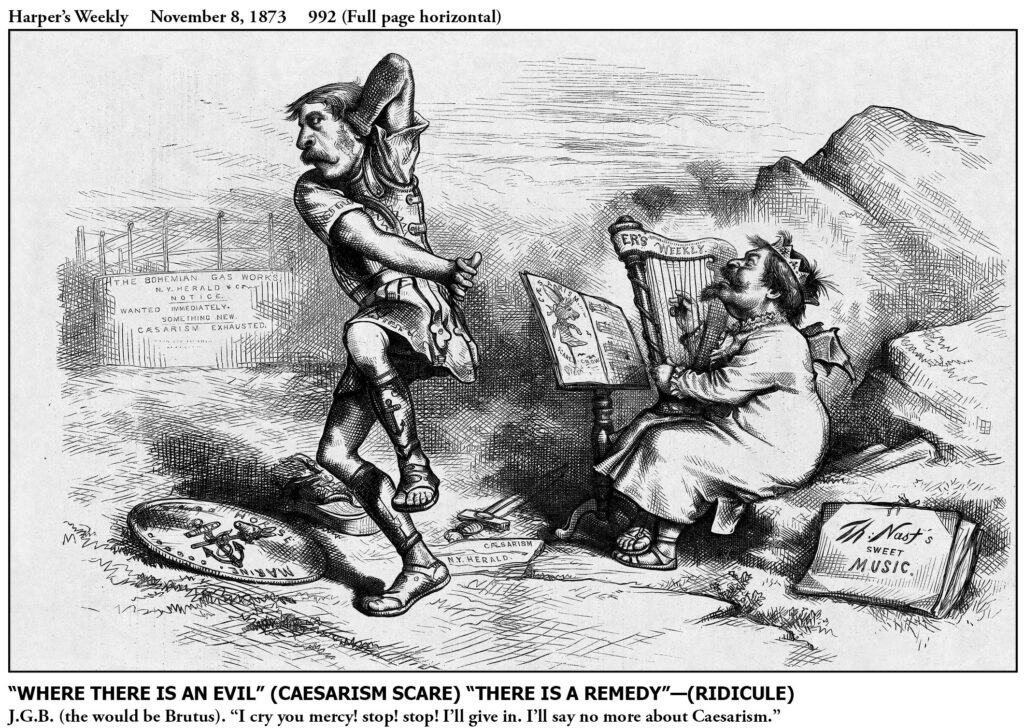
Harper’s Weekly – November 8, 1873
Nast’s target in this cartoon was James Gordon Bennett, Jr., the wealthy, conceited, autocratic editor of the Herald. Junior was only 25 in 1867 when he inherited control of the paper from his crusty, almost friendless father. Both men lived in the family mansion, and Senior counseled Junior until his death in June 1872.
In spite of his vast fortune, Junior — known, feared and despised as Gordon — was forever ostracized by New York “Society” after he arrived late and drunk at a party at his fiancé’s house, urinated into the grand piano in full view of her family, and subsequently was horse-whipped by her brother. However, Bennett was a smart dare-devil, who excelled in creating news as well as reporting it, as evidenced by his pioneering use of extraordinary investigations (e.g. finding explorer David Livingstone in Africa) and long personal interviews.
In June 1873, Bennett’s Herald livened up the dog days summer by accusing Grant of “Caesarism” — thirsting for a third term. Shakespeare’s Julius Caesar was taught in many schools and performed in multiple theatres, so the public’s familiarity was sufficient for Nast to satirize its scenes in ten cartoons. The catchy theme reverberated in the anti-Grant press.
When Nast returned from a six-month leave in September, he went after Bennett with a vengeance, using Shakespeare to fight Shakespeare. Bennett was portrayed 30 times before the end of Grant’s Presidency, usually as an ass (Bottom, the weaver) from A Midsummer Night’s Dream. Here, Nast tormented Bennett with his own “Sweet Music” played on a harp (Harper’s Weekly), with his sheet music containing an ass-headed Caesarism scarecrow. His heading pulled no punches, fighting fantasy with ridicule.
